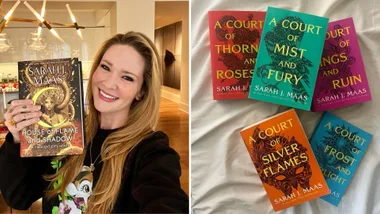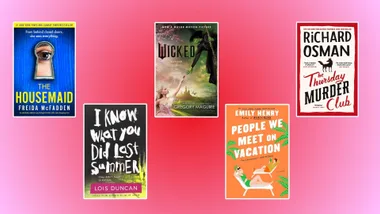If you’re a literary enthusiast, you’ve probably already read all the – modern and ancient – classics.
From Of Mice and Men to Pride and Prejudice to To Kill A Mockingbird, you probably began ticking off those titles years ago.
However, if you’re looking for something new to sink your proverbial teeth into, whether it be a cowboy western with a twist, a Russian tome that rivals Dostoevsky, or a regency era thriller that you won’t be able to put down, we have compiled a list of the greatest unsung classics, the overlooked masterpieces and the dismissed greats to find you the next centrepiece for your bookshelf.
Happy reading.

Chess, or The Royal Game, by Stefan Zweig, is the definition of an unsung classic. Zweig’s last published work before his tragic death by suicide in 1942, Chess revolves around a genius chess master who finally finds his match in mentally anguished monarchist aboard a cruise liner.

Written in the 1920s, Sinclair Lewis’ Babbitt was written as a biting and satiric commentary on society and babbitts, a “person and especially a business or professional man who conforms unthinkingly to prevailing middle-class standards”. This controversial and best-selling novel was one of key motivators that led to Lewis’ eventually being awarded the Nobel prize for Literature in 1930.

Flannery O’Connor’s first major work, Wise Blood, a novel of “low comedy and high seriousness”, is often praised as an unappreciated American classic. The story revolves around a World War II veteran who returns to his small Southern town to pioneer an “anti-religious ministry”.

Elective Affinities or Die Wahlverwandtschaften, by German polymath Johann Wolfgang Goethe, is a scientific literary work which draws parallels between human relationship and the chemical law of affinity, or “examines whether or not the science and laws of chemistry undermine or uphold the institution of marriage, as well as other human social relations”.

Great Irish writer John McGahern’s final novel, That They May Face the Rising Sun or By The Lake, is an elegiac portrait of a quaint life in a small town, much like the one McGahern lived in, which paints a picture of the ordinary, a subject which McGahern constantly dwelled on.

Fernando Pessoa’s The Book of Disquiet is an unedited, “factless” autobiography about the life of Pessoa which has been described as “many books in one book, by many authors, yet one author”.

William March’s 1933 best-seller Company K is regarded as one of the most honest and most telling books about World War I and is the most reprinted book by March. The book is made up of “113 vignettes” of life in ‘Company K’.

Ivan Goncharov’s second novel, Oblomov, is a satiric look at Russian society that revolves around Oblomov, a superfluous rich noble who is incapable of making important decisions or owning up to his life.

John Fante’s work, Ask The Dust, is a Great Depression-era novel set in Los Angeles, featuring Fante’s alter-ego, struggling writer Arturo Bandini. The book is considered one of the greatest works of fiction ever.

Described as “sadly hilarious and hilariously sad”, Diary of a Man Old Man is one of Japan’s most prolific writers, Jun’ichirō Tanizaki’s, most critically acclaimed books. The novel revolves around an elderly man recovering from a stroke who is struggling with the concept of ageing gracefully.

From one of Spain’s most celebrated and most inspired writers comes the literary work, Sepharad. The work jumps from past to present to tell the stories of a tapestry of different people caught in the web of the Holocaust and it’s infinite consequences.

Nina Bawden’s work, The Ice House, takes you “along a perfectly ordinary street, rip the facade away and show the strange and passionate events that go on behind closed doors”. The work tells the story of two women who, having known each their whole lives, are given another look at each other through the prism of loss and grief.











